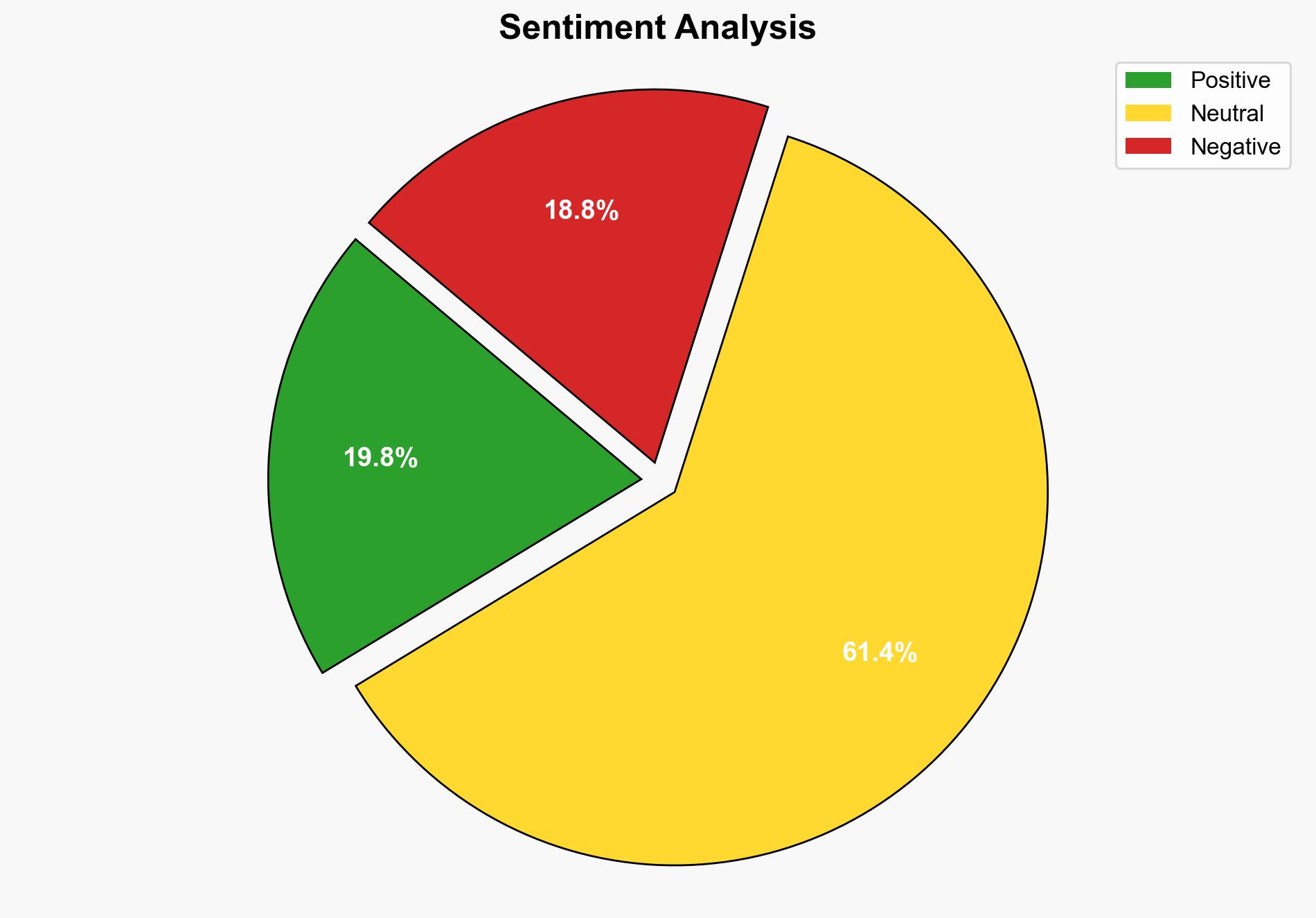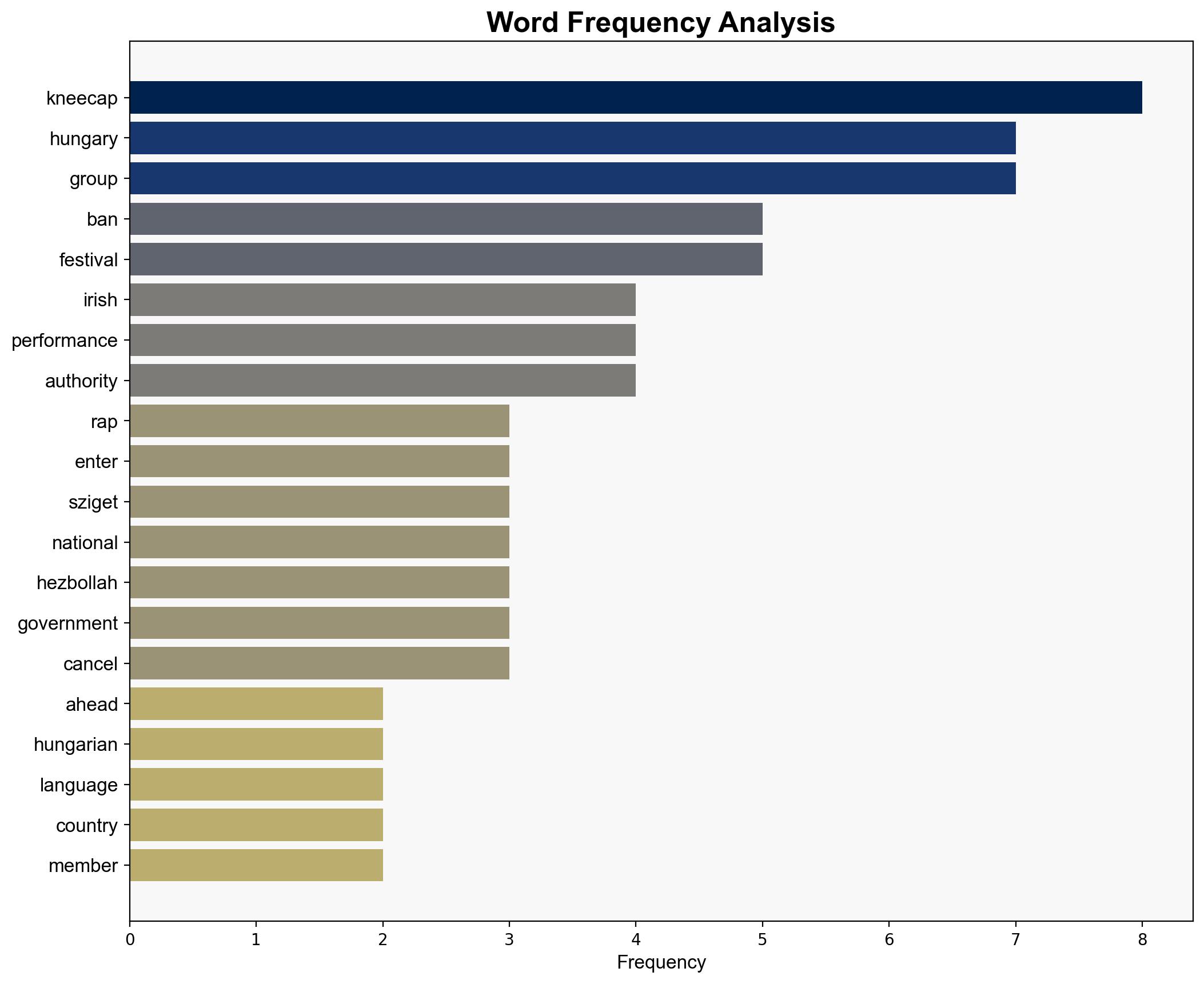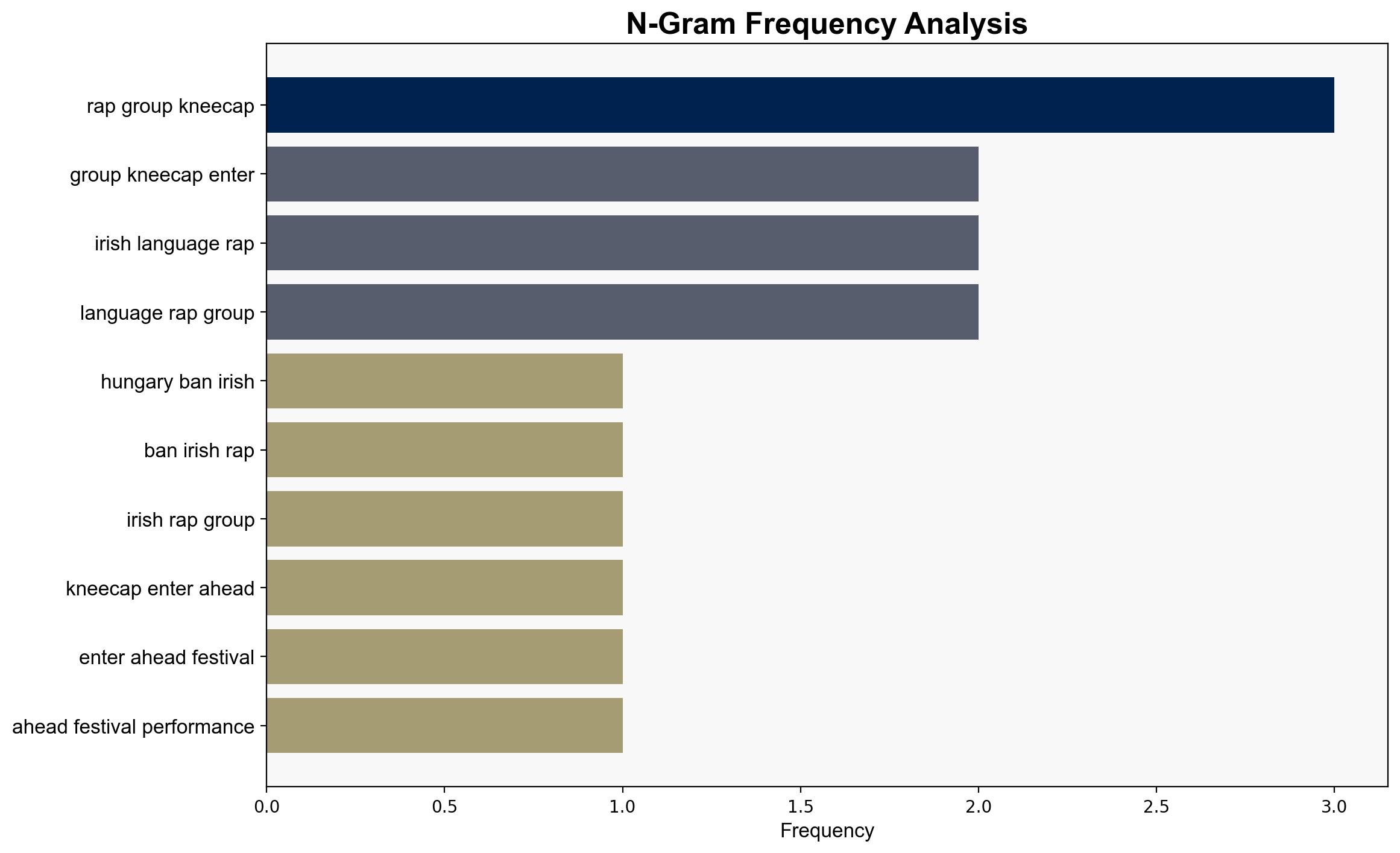Hungary bans Irish rap group Kneecap from entering ahead of festival performance – ABC News
Published on: 2025-07-24
Intelligence Report: Hungary bans Irish rap group Kneecap from entering ahead of festival performance – ABC News
1. BLUF (Bottom Line Up Front)
The Hungarian government’s decision to ban the Irish rap group Kneecap from entering the country is primarily driven by concerns over national security and antisemitism. The most supported hypothesis is that Hungary aims to maintain its zero-tolerance policy on antisemitism and prevent potential unrest at the Sziget Festival. Confidence in this assessment is moderate due to limited transparency in the decision-making process. Recommended action includes monitoring regional reactions and potential diplomatic repercussions.
2. Competing Hypotheses
Hypothesis 1: The ban is a preemptive measure to uphold Hungary’s zero-tolerance policy on antisemitism and prevent potential unrest at the Sziget Festival. This aligns with Hungary’s recent actions and statements regarding antisemitism and national security.
Hypothesis 2: The ban is a politically motivated move to align with broader geopolitical interests, possibly influenced by Hungary’s relations with Israel and its stance on Middle Eastern conflicts. This hypothesis considers Hungary’s foreign policy and potential pressure from international allies.
Using ACH 2.0, Hypothesis 1 is better supported by the available evidence, including public statements and Hungary’s historical policy stance.
3. Key Assumptions and Red Flags
Assumptions include the belief that Kneecap’s lyrics and public statements pose a genuine threat to national security. A red flag is the lack of detailed evidence linking the group directly to violent actions or organized antisemitic activities. Potential cognitive bias includes confirmation bias towards Hungary’s established policy positions.
4. Implications and Strategic Risks
The ban could escalate tensions between Hungary and cultural or political groups opposing the decision, potentially affecting Hungary’s international reputation. There is a risk of increased scrutiny on Hungary’s immigration and cultural policies, which could lead to diplomatic strains. The decision may also influence other countries’ stances on similar cultural or political issues.
5. Recommendations and Outlook
- Monitor international reactions and potential diplomatic fallout, particularly from Ireland and cultural organizations.
- Engage in dialogue with cultural and political stakeholders to mitigate tensions and clarify Hungary’s policy intentions.
- Scenario-based projections:
- Best Case: The situation de-escalates with minimal international backlash, and Hungary maintains its security policies without further incidents.
- Worst Case: The ban leads to significant diplomatic disputes and cultural boycotts, affecting Hungary’s international relations.
- Most Likely: The issue remains a point of contention but does not escalate beyond diplomatic discussions and media coverage.
6. Key Individuals and Entities
Naoise Caireallin, Dochartaigh, Liam Hannaidh, Zoltán Kovács, János Bóka
7. Thematic Tags
national security threats, antisemitism, cultural diplomacy, geopolitical relations





